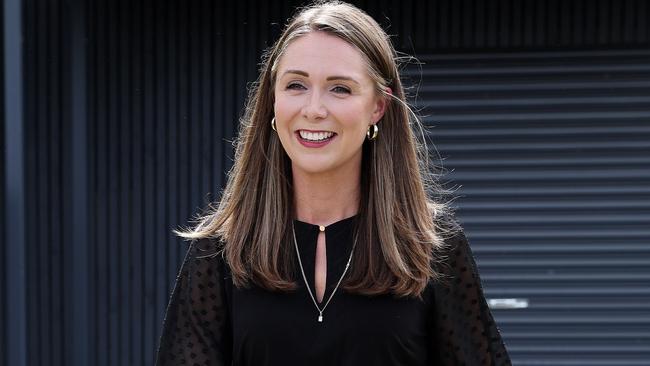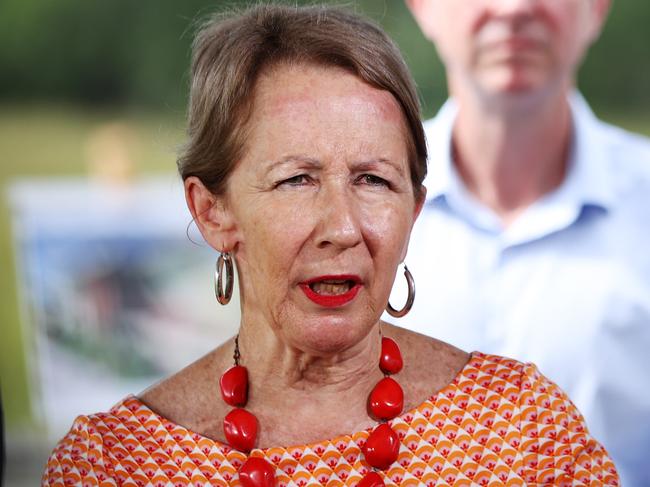Stark new figures showing Qld’s loss of teachers outstripping recruitment
Queensland’s loss of teachers and teacher aides is outstripping the recruitment of new staff by 50 per cent, new figures reveal. See the list of schools with the highest vacancies including one that has 13.

Education
Don't miss out on the headlines from Education. Followed categories will be added to My News.
Queensland’s loss of teachers and teacher aides is outstripping the recruitment of new staff by 50 per cent, new figures reveal.
In response to a Sunday Mail report on a record exodus of educators from the state department, government frontbencher Meaghan Scanlon said that to date, the state government had hired more than 5900 new teachers and 2300 new teacher aides.
“The retention rate of teachers and of all teacher aides is around 95 per cent,” she said.
While the government was on track to meet its four-year teacher recruitment target, the new figures revealed a worsening resignation rate over four years.
Teacher and teacher aide resignations increased by more than 60 per cent from 2020-23.
Teacher resignations have spiked 54 per cent since 2020, with more than 2600 state school teachers ditching the profession last year, compared with about 1600 three years prior.
The number of teacher aides quitting is even more stark, with 1142 resignations last year compared with just 637 in 2020.
In total, 8646 teachers and 3729 teacher aides quit from state schools in four years.
This overshadowed the state government being on track to fulfil its 2020 promise to hire more than 6100 new teachers and 1100 new teacher aides by the end of this year.
Ms Scanlon said: “There’s a whole range of factors at the moment that are pushing people from all different industries to look at other types of jobs that are available.
“We also know there are teacher aides who are actually getting qualifications to basically become teachers as well.
“We are trying to attract our key workers to regional Queensland and there are a whole range of incentives out there.”
Education Minister Di Farmer said earlier there were various reasons why teaching staff resign including transitioning to a departmental role, returning to study, or family commitments.
“Queensland’s universities continue to deliver a pipeline of new teachers and help teacher aides transition to Registered Teacher positions,” a spokesman for Ms Farmer’s office said.
“We will continue to monitor trends in resignations within the Department of Education to ensure support services and training opportunities are fit for purpose.”

It comes as tensions remain high over the proposed amendments to the state’s Education Act, which were introduced last month, including changes to suspensions and exclusions.
They would see new appeal rights for students who had accumulated 11 days of short suspensions within a year.
They would also require student support plans for Aboriginal and Torres Strait Islander students, students with a disability, and Prep students who were suspended or excluded.
The powerful Queensland Teachers Union said its members were appalled.
“The Bill fails to contribute to the good order and management of state schools because it undermines the professional decision-making powers of school principals and will exacerbate excessive workload pressures on school leaders,” the QTU submission said.
Teachers’ Professional Association of Queensland state secretary Edward Schuller said it would take decisions away from school leaders and give the power to bureaucrats.
“Beyond a basic question of functionality, the attempt to introduce a Department of Education managed appeals process is a slap in the face to principals and their schooling communities, and serves to worsen the issue of student discipline,” TPAQ’s submission said.
Ms Scanlon said the government had listened to the QTU and other organisations and taken on board the feedback from the parliamentary committee hearings.
“Of course, we’ll take on board any of (the parliamentary committee’s) recommendations, our principals’ powers in regards to suspensions haven’t changed,” she said.
“I think everyone expects that it’s reasonable that we ensure that young people who are facing suspensions get the support they need, but it’s important that we also support our teachers.
“We have increased some funding and started to do dedicated programs, particularly for young people who have seen a number of suspensions.”




